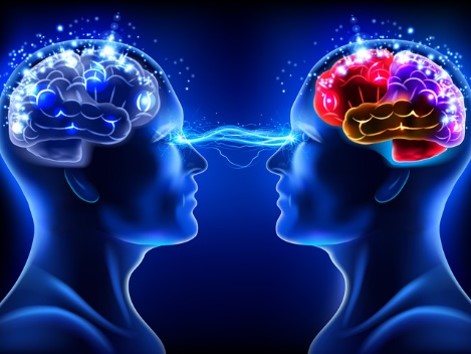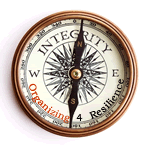
“Knowledge is between heads.”
Karl Weick, Ph.D.
Organizational learning is partially accomplished (about 20%) in formal education & training settings (classroom, simulators, drills and exercises). We provide those and show how to design and create them. However, the majority of our learning happens during normal work or community activities where people informally connect and communicate with each other.
People sharing ideas and knowledge describes the relational reality of our lives. We experience more than the movement of messages from one brain to another. Communication is a process of mutually molding meaning – sensemaking in continuous coordination. Leading skillful participation that generates successful dialogue is crucial to rapid learning in organizations. We invite people into the process of creating knowledge together in dialogue, rather than only delivering pre-formed knowledge content. People respond well to this new approach.
The “New View,” Also Known As “Safety Differently” Principles
- Safety is not defined by the absence of accidents, but by the presence of capacity.
- Workers aren’t the problem, workers are the problem solvers.
- We don’t constrain workers in order to create safety, we ask workers what they need to do work safely, reliably, and productively.
- Safety doesn’t prevent bad things from happening, safety ensures good things happen while workers do work in complex and adaptive work environments. (Conklin, 2019)
The “New View” Approach of Relational Leading
People understand the difference between knowing that and knowing how, between description and action. “Relational leaders are open to the present moment and to future possibilities, They engage in questioning, provoking, answering, agreeing, objecting dialogue rather than dialogue that finalizes, materializes, explains, and kills casually, that drowns out another’s voice” (Cunliffe & Eriksen, 2011). Not all ways to ask a question invite cooperation. We must develop the skills to move creatively in the unfolding process of participating in dialogue.
We focus, for example, on the challenges of creating organizational culture, leading teams, handling change, reducing conflict, grappling with emotions, stimulating creativity, combating organizational apathy, and coaching people. These challenges all require sensitive, flexible, reflective and creative moments in dialogue.
The “New View” enables relationships with conditions likely to encourage these creative moments of effective dialogue. Instead of acting as though people are a problem to control, people begin to interact as though other people have solutions we really want to harness. Many of us have been immersed in conditions that need to be reversed! We need to stop doing some ineffective, even destructive things based upon a faulty premise, and begin doing things differently in the ways we fundamentally think, talk, and act. We show you what to change, why and how. Our ideas about what we often call ‘human error’ is a good example to start with.

Creating Effective Feedback Loops
Closing the “learning loop” has often been a struggle for trainers and organizations that invest in training, education, lessons learned and knowledge management systems. People attend seminars and workshops but then go back to the “real world” and quickly lose the training investment, often before they ever try to use the new knowledge. Lessons learned are actually ‘lessons available.’ Without a follow through system, we usually don’t know if anything really changes.
Real and deep understanding only comes from the use of knowledge. Repetition and dialogue with coworkers will anchor new learning in their world. This continuing activity also creates feedback in the form of new questions and contribution of their stories. This feedback loop provides for a deepening of the learning and ultimately improves education & training! Learners want to take ownership in a regenerative adult learning experience. They feel appreciated, connectively engaged and valued.
References
Conklin, T. E. (2019). The 5 principles of human performance: A contemporary update of the building blocks of human performance for the new view of safety, PreAccident Media,Santa Fe, New Mexico.
Cooperrider, D. L. and Whitney, D. (2005). Appreciative inquiry: A positive revolution in change. San Francisco: Berrett-Koehler Publishers.
Cunliffe, A., & M. Eriksen (2011). Relational Leadership. Human Relations 2011, 64: 14-25
Dekker, S. W. A. (2015). Safety differently: Human factors for a new era, Second edition, CRC Press, Boca Raton, Florida
Dekker, S. W. A. (2011). Drift into failure: From hunting broken components to understanding complex systems, Ashgate Publishing Company, Burlington, Vermont
Dekker, S. W. A. (2006). The field guide to understanding human error, Ashgate Publishing Company, Burlington, Vermont
Gergen, K. J. (2009). An invitation to social construction. (2nd ed.). London: Sage
Herstead, L. and Gergen, K. J. (2013). Relational leading: Practices for dialogically based collaboration. Chagrin Falls, OH: Taos Institute Publications
Schein, E. H. (1993). On dialogue, culture, and organizational learning. Organizational Dynamics, 22,27-37.
Weik, K. E. (1995). Sensemaking in organizations. Thousand Oaks, CA: Sage

